EP 812 What is Settler Colonialism and Why is it Catching On in Some Circles?
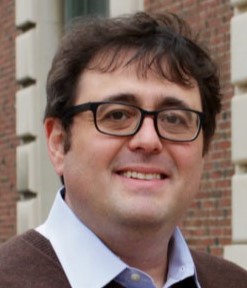 Since Hamas’s attack on Israel last October 7,2023 the term “settler colonialism” has become central to public debate about Israel and the Palestinians, particularly in academic circles and among young people. And while the concept may be new to most Americans, settler colonialism is shaping the way many people think about the history of the United States, Israel and Palestine. It is a history we share along with countries like Canada and Australia, whose modern identity is based on having subjugated Indigenous Peoples in order to establish what we recognize today. So, the question then becomes, centuries later, is our founding, its core documents and political legitimacy illegitimate? If you believe that it is, then what is the remedy? Decolonize? Make reparations? Or look away because the claims and remedies may be too difficult to even imagine. Adam Kirsch, author of “On Settler Colonialism: Ideology, Violence, and Justice”, joins us to try to make sense out of a fascinating, but difficult, subject.
Since Hamas’s attack on Israel last October 7,2023 the term “settler colonialism” has become central to public debate about Israel and the Palestinians, particularly in academic circles and among young people. And while the concept may be new to most Americans, settler colonialism is shaping the way many people think about the history of the United States, Israel and Palestine. It is a history we share along with countries like Canada and Australia, whose modern identity is based on having subjugated Indigenous Peoples in order to establish what we recognize today. So, the question then becomes, centuries later, is our founding, its core documents and political legitimacy illegitimate? If you believe that it is, then what is the remedy? Decolonize? Make reparations? Or look away because the claims and remedies may be too difficult to even imagine. Adam Kirsch, author of “On Settler Colonialism: Ideology, Violence, and Justice”, joins us to try to make sense out of a fascinating, but difficult, subject.
Podcast: Play in new window | Download
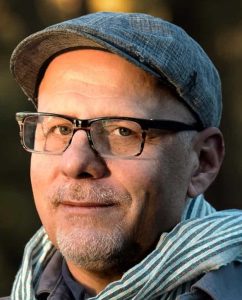 Benjamin’s Franklin’s contributions to his times, and our country, are too numerous to restate. His greatest gift, however, may have been his philosophical approach to living a ‘useful’ life right until the very end. And while the self-help movement of our day has its own exemplars, going back and revisiting his 13 virtues and his willingness to evolve and change, and admit to errata(mistakes), may be as important as his many experiments with electricity or his role in our nation’s beginnings. In fact, even if Benjamin hadn’t been the only one of the Founding Fathers to have signed all four of our nation’s foundational documents, he would have been the most famous Founder because of his extensive travel abroad, according to Eric Weiner, author of “Ben & Me: In Search of a Founder’s Formula for a Long and Useful Life.” As the author has gotten older and begun thinking about his role and purpose at this stage of life, he found guideposts in living a life in full by reading what Franklin said and seeing what he did. He shares some of the lessons here and more in this insightful book.
Benjamin’s Franklin’s contributions to his times, and our country, are too numerous to restate. His greatest gift, however, may have been his philosophical approach to living a ‘useful’ life right until the very end. And while the self-help movement of our day has its own exemplars, going back and revisiting his 13 virtues and his willingness to evolve and change, and admit to errata(mistakes), may be as important as his many experiments with electricity or his role in our nation’s beginnings. In fact, even if Benjamin hadn’t been the only one of the Founding Fathers to have signed all four of our nation’s foundational documents, he would have been the most famous Founder because of his extensive travel abroad, according to Eric Weiner, author of “Ben & Me: In Search of a Founder’s Formula for a Long and Useful Life.” As the author has gotten older and begun thinking about his role and purpose at this stage of life, he found guideposts in living a life in full by reading what Franklin said and seeing what he did. He shares some of the lessons here and more in this insightful book. Our guest, Peter Schwartzstein, is a journalist on the climate security beat. He’s immersed himself in some of the hot spots of the world, like Syria, for years during its civil war to unpack the story of how global warming is adding to, if not a key precipitant of, conflicts in many parts of the world. This is particularly true in the Middle East, South Asia and Latin America where intensifying gang warfare in urban neighborhoods to ‘old school’ piracy are raging. The climate plays a role in adding to a variety of other destabilizers when we consider how dependent many regions are in living off of the land. This only makes sense. Historically we have seen, for example, the role that water, or lack thereof, has played in disputes between nations. In his book, “The Heat and the Fury: On the Frontlines of Climate Violence”, Schwartzstein describes in vivid detail how global warming can unleash dislocation, exhaustion and a sense of powerlessness. And while this phenomenon is most aggravated presently in poorer countries in warmer climates, he can see how it has the potential to push over to wealthier nations going forward.
Our guest, Peter Schwartzstein, is a journalist on the climate security beat. He’s immersed himself in some of the hot spots of the world, like Syria, for years during its civil war to unpack the story of how global warming is adding to, if not a key precipitant of, conflicts in many parts of the world. This is particularly true in the Middle East, South Asia and Latin America where intensifying gang warfare in urban neighborhoods to ‘old school’ piracy are raging. The climate plays a role in adding to a variety of other destabilizers when we consider how dependent many regions are in living off of the land. This only makes sense. Historically we have seen, for example, the role that water, or lack thereof, has played in disputes between nations. In his book, “The Heat and the Fury: On the Frontlines of Climate Violence”, Schwartzstein describes in vivid detail how global warming can unleash dislocation, exhaustion and a sense of powerlessness. And while this phenomenon is most aggravated presently in poorer countries in warmer climates, he can see how it has the potential to push over to wealthier nations going forward.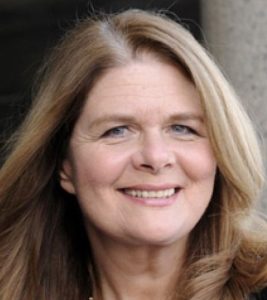 How polarized are we, really? While the extremes in both ideological camps may be smaller in numbers than mainstream opinions their effect on our political dialogue and the conveyor belt of lies and distortions on social media amplify and accelerate those differences. Thus, it feels like we are in a pitched battle for the soul of America. The echo chambers distort so much of what is heard and seen that you feel like you’re in a fun house of sorts. So how do we, everyday commonsense Americans, render the ‘stridents’ less powerful than they appear to us. In her well thought out and researched book, “Remaking the Space Between Us: How Citizens Can Work Together to Build a Better Future For All”, Diana McLain Smith provides us, as she has business leaders for years, on a “Leading Through Relationships(LTR) approach which has been used around the world to convert debilitating intergroup conflict into a constructive force for change.
How polarized are we, really? While the extremes in both ideological camps may be smaller in numbers than mainstream opinions their effect on our political dialogue and the conveyor belt of lies and distortions on social media amplify and accelerate those differences. Thus, it feels like we are in a pitched battle for the soul of America. The echo chambers distort so much of what is heard and seen that you feel like you’re in a fun house of sorts. So how do we, everyday commonsense Americans, render the ‘stridents’ less powerful than they appear to us. In her well thought out and researched book, “Remaking the Space Between Us: How Citizens Can Work Together to Build a Better Future For All”, Diana McLain Smith provides us, as she has business leaders for years, on a “Leading Through Relationships(LTR) approach which has been used around the world to convert debilitating intergroup conflict into a constructive force for change. Longtime Defense researcher Luis Elizondo has become associated with reporting on the existence of UFOs(unidentified flying objects), now known as unidentified anomalous phenomena(UAPs). He made headlines in 2017 when he resigned as a senior intelligence official running a Pentagon program investigating these objects in the sky and alerted the public to the fact that the secrecy and lack of resources devoted to this topic was denying the public of its right to know about this long discussed topic. His disclosures caused much ruckus and has led to serious discussion about the topic, to the point where Congress, on a bipartisan basis, is taking the matter seriously. Elizondo posits that we are not alone and, in fact, states in his new book “Imminent: Inside the Pentagon’s Hunt for UFOs” that “humanity is, in fact, not the only intelligent life in the universe, and not the alpha species.” His thoughts, observations and first hand knowledge of the subject make for a fascinating conversation.
Longtime Defense researcher Luis Elizondo has become associated with reporting on the existence of UFOs(unidentified flying objects), now known as unidentified anomalous phenomena(UAPs). He made headlines in 2017 when he resigned as a senior intelligence official running a Pentagon program investigating these objects in the sky and alerted the public to the fact that the secrecy and lack of resources devoted to this topic was denying the public of its right to know about this long discussed topic. His disclosures caused much ruckus and has led to serious discussion about the topic, to the point where Congress, on a bipartisan basis, is taking the matter seriously. Elizondo posits that we are not alone and, in fact, states in his new book “Imminent: Inside the Pentagon’s Hunt for UFOs” that “humanity is, in fact, not the only intelligent life in the universe, and not the alpha species.” His thoughts, observations and first hand knowledge of the subject make for a fascinating conversation.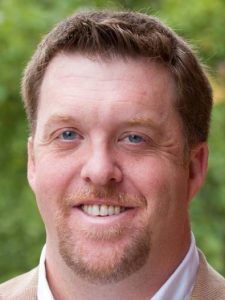 What kind of question is that, you may ask? We’ve always had grades. How would we evaluate performance without them? Is this just another ‘woke’ idea, like participation trophies for playing the game? How will they learn to compete in this dog eat dog world awaiting our students? Joshua Eyler, director of the Center for Excellence in Teaching and Learning and a clinical assistant professor of teacher education at the University of Mississippi and the author of “Failing Our Future: How Grades Harm Students, and What We Can Do About It” has answers to all of those questions. He illustrates in his book how grades interfere with students’ intrinsic motivation and perpetuate the idea that school is a place for competition rather than discovery. In his research on the subject, he feels that grades actually impede the learning process. He provides alternative ‘grading models’ which are being adapted in certain educational settings as we continue to see student anxiety and mental health issues go off the charts. It’s a very interesting discussion.
What kind of question is that, you may ask? We’ve always had grades. How would we evaluate performance without them? Is this just another ‘woke’ idea, like participation trophies for playing the game? How will they learn to compete in this dog eat dog world awaiting our students? Joshua Eyler, director of the Center for Excellence in Teaching and Learning and a clinical assistant professor of teacher education at the University of Mississippi and the author of “Failing Our Future: How Grades Harm Students, and What We Can Do About It” has answers to all of those questions. He illustrates in his book how grades interfere with students’ intrinsic motivation and perpetuate the idea that school is a place for competition rather than discovery. In his research on the subject, he feels that grades actually impede the learning process. He provides alternative ‘grading models’ which are being adapted in certain educational settings as we continue to see student anxiety and mental health issues go off the charts. It’s a very interesting discussion.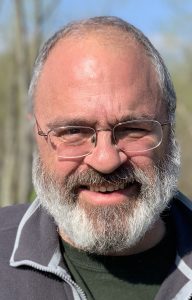 While the rankings for U.S. News & World Report seem to get most of the attention, perhaps there’s another lens we should put on the ranking process. Paul Glastris, editor-in-chief of Washington Monthly, once worked there and sensed that there is a better scoring system to reflect the needs of more students across the country, so he designed one. His is not based on selectivity, endowment size, and name recognition. Rather it reflects well on the colleges and universities that focus on social mobility, affordability, and provide educations that lead to careers in public service and jobs that allow students to pay off their student debt. You may find it interesting that schools with “State” in their name do very well. The September/October issue of his magazine features great articles about where you can get the best bang for the buck, a university that’s breaking the mold by doing the opposite of what the trends are in higher education and how to escape what’s called “Higher Ed’s Bermuda Triangle.” This podcast breaks it all down and toplines what these articles explore in depth. It’s all worth a listen and a read.
While the rankings for U.S. News & World Report seem to get most of the attention, perhaps there’s another lens we should put on the ranking process. Paul Glastris, editor-in-chief of Washington Monthly, once worked there and sensed that there is a better scoring system to reflect the needs of more students across the country, so he designed one. His is not based on selectivity, endowment size, and name recognition. Rather it reflects well on the colleges and universities that focus on social mobility, affordability, and provide educations that lead to careers in public service and jobs that allow students to pay off their student debt. You may find it interesting that schools with “State” in their name do very well. The September/October issue of his magazine features great articles about where you can get the best bang for the buck, a university that’s breaking the mold by doing the opposite of what the trends are in higher education and how to escape what’s called “Higher Ed’s Bermuda Triangle.” This podcast breaks it all down and toplines what these articles explore in depth. It’s all worth a listen and a read.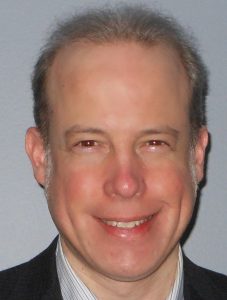 Listening to this podcast, you can discern that I am not a fan of Donald Trump. His approach to ethics, decency, business practices and bruising politics is an anathema to me. So, to the extent that I can keep up with his subterfuge, I attempt to do so. I’ll admit that it is a challenge because he spews a firehose of lies, distortion, misdirection, and gaslighting. Frankly, it’s disorienting. If he has one gift that I can acknowledge, if not applaud, it’s his ability to be unabashed in his torrent of deception. Whether it was the cooperation, if not collusion, between Russia and members of his 2016 presidential campaign, best described in a report of the Senate Intelligence Committee, led by Republican Sen. Marco Rubio or the Big Lie of 2020 or the ‘perfect phone call’ trying to trade military support to Ukraine for dirt on the Biden family, this man’s propensity to obfuscate the truth, and sell it to millions of Americans, is unparalleled in our history. How does he do it? Our guest, Steve Benen, explains on this podcast and in his new book “Ministry of Truth: Democracy, Reality, and the Republicans’ War on the Recent Past.”
Listening to this podcast, you can discern that I am not a fan of Donald Trump. His approach to ethics, decency, business practices and bruising politics is an anathema to me. So, to the extent that I can keep up with his subterfuge, I attempt to do so. I’ll admit that it is a challenge because he spews a firehose of lies, distortion, misdirection, and gaslighting. Frankly, it’s disorienting. If he has one gift that I can acknowledge, if not applaud, it’s his ability to be unabashed in his torrent of deception. Whether it was the cooperation, if not collusion, between Russia and members of his 2016 presidential campaign, best described in a report of the Senate Intelligence Committee, led by Republican Sen. Marco Rubio or the Big Lie of 2020 or the ‘perfect phone call’ trying to trade military support to Ukraine for dirt on the Biden family, this man’s propensity to obfuscate the truth, and sell it to millions of Americans, is unparalleled in our history. How does he do it? Our guest, Steve Benen, explains on this podcast and in his new book “Ministry of Truth: Democracy, Reality, and the Republicans’ War on the Recent Past.”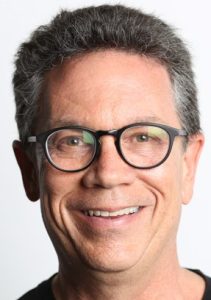 Why do politicians lie so often? There must be a reason for it. And why do we not demand better of them and ask the media to do a better job of holding them to account? One could argue that, really, the incentive structure in politics rewards those who lie and the penalties are too slight to stop the practice. With it comes a growing cynicism that no one can be trusted to keep their word and the pillars of democracy become further weakened. Bill Adair, from his founding of PolitiFact years back, to this day, has attempted to put the Truth-O-Meter to work, developing a methodology to reveal what’s true and what’s not. In his new book, “Beyond the Big Lie”, he shines the spotlight of the best liars in politics and names names in the Lying Hall of Fame. He then prescribes ways that we may be able to curb the default tendency to lie. Finally, he reveals, empirically, which party lies more often.
Why do politicians lie so often? There must be a reason for it. And why do we not demand better of them and ask the media to do a better job of holding them to account? One could argue that, really, the incentive structure in politics rewards those who lie and the penalties are too slight to stop the practice. With it comes a growing cynicism that no one can be trusted to keep their word and the pillars of democracy become further weakened. Bill Adair, from his founding of PolitiFact years back, to this day, has attempted to put the Truth-O-Meter to work, developing a methodology to reveal what’s true and what’s not. In his new book, “Beyond the Big Lie”, he shines the spotlight of the best liars in politics and names names in the Lying Hall of Fame. He then prescribes ways that we may be able to curb the default tendency to lie. Finally, he reveals, empirically, which party lies more often.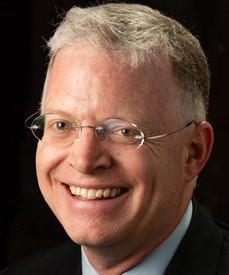 Many presidents have attempted to influence the actions of the U.S. Department of Justice and FBI for political means. I am old enough to remember the Saturday Night Massacre, as it was called, in Richard Nixon’s presidency during the Watergate scandal. And the FBI had its own political agenda on the remarkably long, and dubious, tenure of J. Edgar Hoover. However, few presidents have been as indifferent to the distance that should exist between federal law enforcement and the president’s personal desires or prejudices than Donald Trump. New norms established in the wake of the Watergate scandal have been trampled over. He sought to use the attorney general, special prosecutors, U.S. attorneys and the FBI as tools to help himself and his political allies and punish his enemies. Examples too numerous to recount are detailed in David Rohde’s new book, “Where Tyranny Begins.” A Pulitzer Prize winner and national security editor at NBC News, Rohde tells remarkable stories behind headlines long forgotten about the pressure Trump tried to exert on cases like the Russian campaign interference, the Election results in 2020 and many others. It’s recent history and it’s a foreboding reminder at this critical juncture.
Many presidents have attempted to influence the actions of the U.S. Department of Justice and FBI for political means. I am old enough to remember the Saturday Night Massacre, as it was called, in Richard Nixon’s presidency during the Watergate scandal. And the FBI had its own political agenda on the remarkably long, and dubious, tenure of J. Edgar Hoover. However, few presidents have been as indifferent to the distance that should exist between federal law enforcement and the president’s personal desires or prejudices than Donald Trump. New norms established in the wake of the Watergate scandal have been trampled over. He sought to use the attorney general, special prosecutors, U.S. attorneys and the FBI as tools to help himself and his political allies and punish his enemies. Examples too numerous to recount are detailed in David Rohde’s new book, “Where Tyranny Begins.” A Pulitzer Prize winner and national security editor at NBC News, Rohde tells remarkable stories behind headlines long forgotten about the pressure Trump tried to exert on cases like the Russian campaign interference, the Election results in 2020 and many others. It’s recent history and it’s a foreboding reminder at this critical juncture.